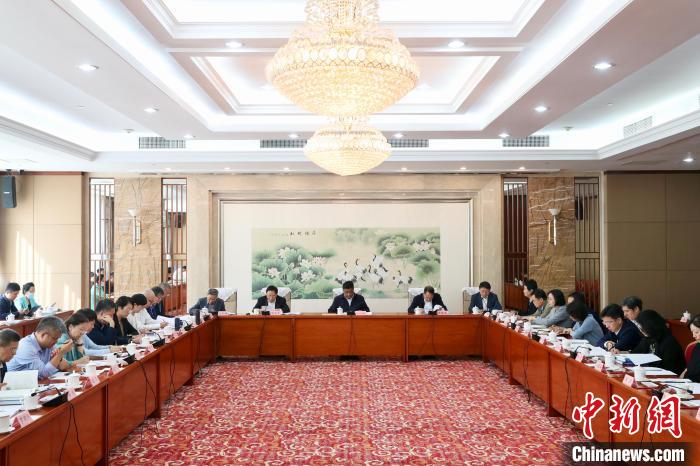
A human rights symposium is held by the China Society for Human Rights Studies in Beijing on Sept 24, 2024. [Photo/Chinanews.com]
Experts at a human rights symposium in Beijing on Tuesday called for stronger judicial protection of human rights, enhanced oversight of law enforcement, and reforms to address issues in the application of coercive legal measures.
Organized by the China Society for Human Rights Studies, the symposium aimed to promote the comprehensive development of human rights across the country.
Zhang Wenxian, director of the Academic Committee of the China Law Society, stressed that the rule of law is the most effective means to protect human rights.
He noted that despite progress, misuse of administrative and coercive measures — which sometimes constitute infringement on personal and property rights — still exists. Zhang said the need for further reforms to safeguard citizens and the legal representatives of entities and organizations is critical.
His comments came after the third plenary session of the 20th Central Committee of the Communist Party of China reaffirmed the importance of the judicial protection of human rights, calling for a "correct outlook on human rights "and more robust legal safeguards.
In July, the CPC Central Committee issued a resolution aimed at advancing Chinese modernization, highlighting the need for stronger protection of personal and property rights through law enforcement and judicial mechanisms. The resolution stressed improving systems for oversight and redress, particularly in cases involving coercive measures such as illegal detentions, the use of torture and the freezing of assets.
Zhang acknowledged that systemic shortcomings remain, particularly in ensuring personal and property rights are respected in law enforcement. He called for a comprehensive plan to improve human rights awareness among judicial personnel and more intensive reforms to prevent abuses of power.
Ma Huaide, president of China University of Political Science and Law, pointed to the problematic application of coercive measures such as the seizure and freezing of property, which often leads to human rights violations.
Ma cited a recent case in Shandong province, where a market regulation official was investigated for threatening a business operator, illustrating the need for greater oversight.
Li Xiao, a senior inspector at the Supreme People's Court, highlighted progress in reforming the trial-centered criminal procedure system, leading to the correction of several wrongful convictions.
However, she noted that misconduct by some law enforcement officers, including illegal detentions and abuse of power for personal gain, continues to undermine public trust in the judicial system.
Li stressed the importance of further reforms to strengthen supervision at all stages of law enforcement and related judicial processes, ensuring that abuses of power are checked and human rights are protected.


